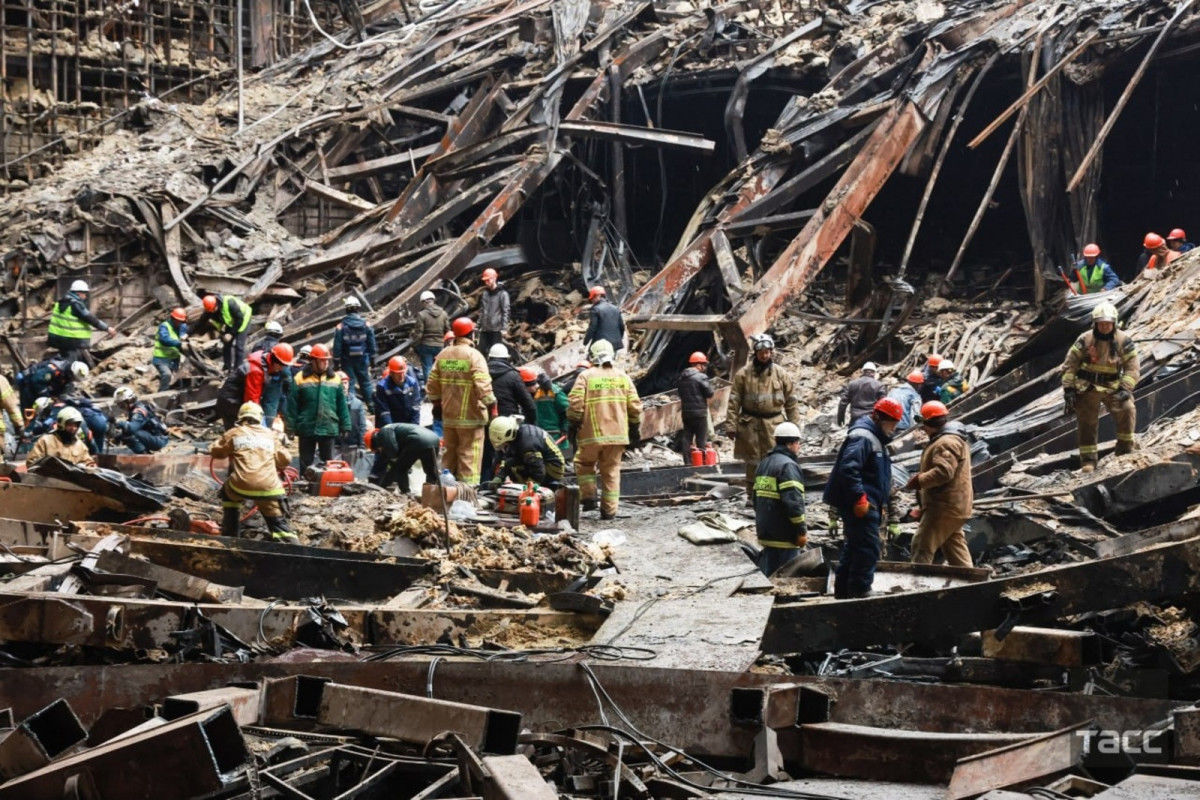On March 24, the Russian authorities presented to the media four individuals accused of the terrorist attack at Crocus City Hall, which resulted in the loss of more than 130 lives. However, a not insignificant detail caught the global audience’s attention: the visible state of torture of the men presented before the Moscow court, confronting us with a profound moral antinomy.
A moral antinomy refers to a situation where two principles are equivalent but, in a specific context, are contradictory or incompatible, leading to an ethical conflict without an apparent resolution. Therefore, the problem here lies not only in the horrific nature of the attack against innocent civilians but also in the turn of events with these cases of torture.
Hours before the court hearing, videos and photos of the suspects circulated on social media, showing Russian security agents subjecting the suspects to torture, including brutal acts such as forcing one to chew a piece of his own previously amputated ear. At the same time, another was partially stripped of his clothing and subjected to electric shocks with wires attached to his genitals.
Thus, an urgent debate emerges: Can testimonies obtained under such extreme circumstances be trusted? In the face of acts of terror, what path should be followed—the rigorous application of the law or the imposition of punishments that are at the limits, or even outside, the established legal framework? Where does the act of terror against terror place us?
Some Reflections on Terrorism
The discussion surrounding the concept of terrorism unveils a problem: the tendency to overlook the actor and the profound objectives behind the executed action. This approach, dominant in public discourse and media, prioritizes the how over the why, sparking intense debates about the possible justification of terrorism under certain circumstances versus the stance on its absolute unacceptability.
Per Bauhn addresses this issue by defining (political) terrorism as “The performance of violent acts, directed against one or more persons, intended by the performing agent to intimidate one or more persons and thereby to bring about one or more of the agent’s political goals” (1989: 28). Similarly, C.A.J. Coady offers a definition that emphasizes “the tactic of intentionally targeting non-combatants [or non-combatant property, when significantly related to life and security] with lethal or severe violence … meant to produce political results via the creation of fear” (2001: 1697). Igor Primoratz joins this discussion by defining terrorism as “The deliberate use of violence, or threat of its use, against innocent people, with the aim of intimidating some other people into a course of action they otherwise would not take” (2013: 24).
Although these definitions function within the current discourse of social sciences, they somewhat neglect the consideration of the actor, their motivations and beliefs, as well as the structural causes that lead to their emergence as a phenomenon. The latter, in turn, highlights the inherent tension in the concept of terrorism and the difficulties that arise when employing it in controversial situations, such as the Israeli-Palestinian conflict.
Regarding these discussions, Henry Torres Vásquez concludes in his research that “there is no international instance where a peaceful acceptance of the consideration of terrorism exists. Likewise, it is essential to bear in mind that the definition adopted must consider the causes of terrorism (p. 86).”This debate is further complicated by real situations of torture and abuse towards individuals accused of committing terrorist acts, challenging the existing definitions and raising critical questions about the appropriate responses to this social phenomenon.
Torture and the Right to Justice
Aristotle already warned about the dubious reliability of evidence obtained through torture, recognizing the propensity of the tortured to lie or falsely accuse to avoid suffering. His analysis foreshadows a deeper reflection on the morality and efficacy of torture, echoing contemporary debates like those aroused by practices in Guantanamo during the administration of former President George W. Bush, which attracted global criticism and condemnation.
In this context, deontological ethics and consequentialism provide frameworks for evaluating torture. While the former considers it intrinsically wrong, regardless of its outcomes, the latter can justify it under extreme circumstances if it prevents greater evils. On the other hand, some cite the “ticking time bomb” scenario, which is a thought experiment that poses an ethical dilemma by suggesting torture might be the only means to prevent an imminent catastrophe, disregarding the defendant’s right to a fair trial and the risk of state abuses for political purposes.
It’s crucial to recognize that acts of terrorism, like the attack at Crocus City Hall, represent heinous crimes with devastating consequences for the victims and their families. However, these acts do not justify the perpetuation of a cycle of violence and abuse.The response to terrorist attacks must align with the principles of the rule of law and human rights, as stipulated by the United Nations Handbook on Criminal Justice Responses to Terrorism, which warns about the counterproductive effects of anti-terrorist measures that violate human rights:
“Terrorism therefore needs to be countered with all the legitimate means at the disposal of the State. Yet, counter-terrorism measures that ignore or damage human rights are self-defeating and unacceptable in a society guided by the rule of law and democratic values” (p. 17).
The Universal Declaration of Human Rights and the International Covenant on Civil and Political Rights emphasize the inherent right to life, liberty, and personal security. To fulfill these obligations, States must develop counter-terrorism strategies that promote and respect human rights. However, situations like the Kremlin’s response to the attack at Crocus City Hall demonstrate how violence and politics often prevail over these principles.
In conclusion, torture is a vice that undermines the purpose of justice, which should deter the criminal without resorting to disproportionate torment. By targeting a defenseless individual, it degrades the victim to the status of an object. Violating the prohibition against torture severely compromises the security and rights not only of the alleged terrorists but of anyone detained under any pretext. This underscores the importance of addressing terrorism within a framework that respects the inherent dignity of all human beings, recognizing that combating this phenomenon and adhering to democratic and ethical principles are compatible and essential for preserving the human community.
The Normalization of Torture and Its Consequences on Society and Human Rights
The tolerance or justification of torture imposes the law of violence over the social and legal order that communities work hard to preserve. In this context, the authority carrying out torture should not have primacy over the social and legal relationships that underpin our coexistence.
What these recent acts of torture highlight is a disturbing political-philosophical background: the normalization of torture as a state tool and the tolerance of political violence against the individual.
This line of reasoning brutally relates to other acts of violence we have observed in the past, such as the assassination of Russian opposition leader Alexei Navalny and the murder or imprisonment of numerous opponents, as well as the banning of organizations labeled as terrorists or extremists.
Arising from this case, a colleague pointed out to me that what is truly alarming is not only the act of torture itself but also its presentation as something seemingly normal or justifiable, with officials avoiding discussing the fact and the concerted silence of the media linked to the Kremlin. This perception constitutes the very essence of absolute terror: a state that justifies and exhibits torture as a warning, not offering responses to criticism but, on the contrary, flaunting it as evidence of the horror it is willing to inflict on those who challenge its authority.
References
Bauhn, Per, 1989, Ethical Aspects of Political Terrorism: The Sacrificing of the Innocent, Lund: Lund University Press.
Coady, C.A.J., 2001, “Terrorism,” in Lawrence C. Becker and Charlotte B. Becker (eds.), Encyclopedia of Ethics, 2nd ed., New York and London: Routledge, vol. 3, 1696–99.
Primoratz, Igor, 2013, Terrorism: A Philosophical Investigation, Cambridge: Polity Press.





